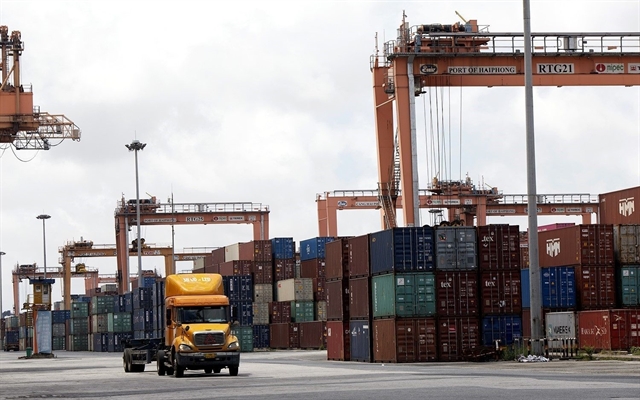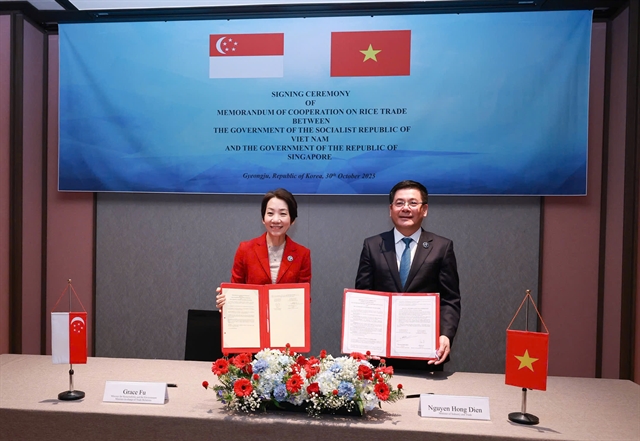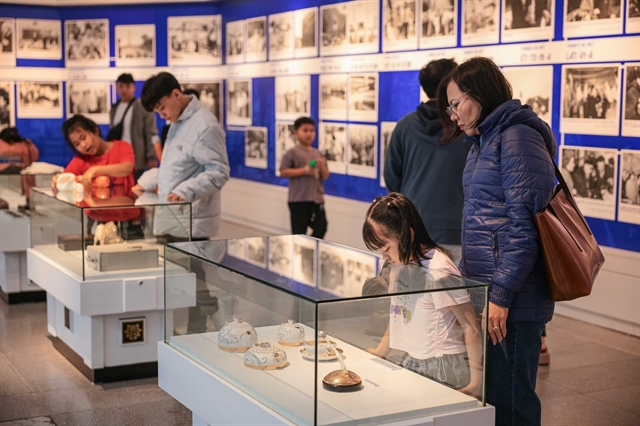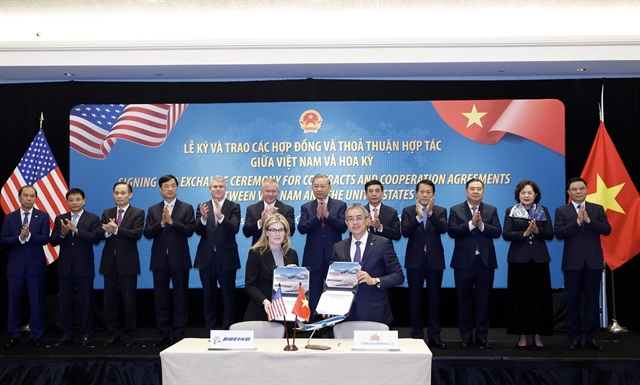 Economy
Economy

 |
| The MOC was signed by Vietnamese Minister of Industry and Trade Nguyễn Hồng Diên (R) and Singaporean Minister for Sustainability and the Environment and Minister-in-charge of Trade Relations Grace Fu (L). — VNS Photo |
HÀ NỘI — Việt Nam and Singapore have signed a Memorandum of Cooperation (MOC) on rice trade during the APEC Economic Leaders’ Week in Gyeongju, the Republic of Korea, marking a milestone in regional food security collaboration.
The agreement, signed on Thursday by Vietnamese Minister of Industry and Trade Nguyễn Hồng Diên and Singaporean Minister for Sustainability and the Environment and Minister-in-charge of Trade Relations Grace Fu, establishes a framework to promote stable and sustainable rice trade while avoiding unnecessary trade restrictions.
Under the MOC, Việt Nam will facilitate rice exports to Singapore in quantities agreed upon by both sides, based on Singapore’s needs and under specific conditions.
Speaking at the signing ceremony, Minister Diên described Singapore as a key economic partner and an important market for Việt Nam.
“The signing of this Memorandum of Co-operation on rice trade is a concrete step in implementing our comprehensive strategic partnership, strengthening the ties between our economies and laying the foundation for stable and sustainable co-operation in rice trade amid the unpredictable fluctuations in the global market,” he said.
Enhancing rice trade co-operation between Việt Nam and Singapore was also a tangible example of joint efforts to secure food supplies and strengthen supply chains within ASEAN, he added.
“In the future, we hope that the regulatory agencies of both sides will continue to closely co-ordinate to expand the supply of reputable, high-quality agricultural and food products from Việt Nam to the Singaporean market,” said Diên.
Minister Fu noted that this was Singapore’s first MOC on rice trade with a trading partner. As the country imports over 90 per cent of its food, Singapore places high importance on establishing partnerships to ensure stable rice supplies and strengthen national food security.
According to the Vietnam Trade Office at the Vietnamese Embassy in Singapore, data from the Singapore Accounting and Corporate Regulatory Authority showed that Singapore's total value of rice imports reached more than 456.2 million SGD (US$351.2 million) last year, a year-on-year increase of 10.73 per cent.
Việt Nam remained the third-largest rice exporter to Singapore in 2024, with an export value of 128.9 million SGD, accounting for 28.25 per cent of the market share. India and Thailand led the market with export values of 148.19 million SGD (32.48 per cent) and 137.75 million SGD (30.19 per cent), respectively. Together, the three countries accounted for 90.93 per cent of Singapore’s rice market.
Việt Nam’s rice exports to Singapore grew by 28.45 per cent year-on-year, reaching approximately 128.9 million SGD.
Vietnamese Trade Counsellor in Singapore Cao Xuân Thắng said that trade promotion for Vietnamese rice in the Singapore market remained limited, with no large-scale campaigns by Vietnamese rice companies or associations.
"Most trade promotion and product displays for Vietnamese rice were currently handled by the Vietnam Trade Office in Singapore," he said.
In contrast, Thailand, Japan and India were actively investing in marketing and had secured agreements with importers and distributors to maintain their rice brands in the Singaporean market, he added.
"Due to limited brand promotion from Vietnamese firms, most rice imported into Singapore was repackaged with local branding, labels and packaging to suit consumer preferences," said Thắng.
Vietnamese-branded rice products are mainly sold in small convenience stores or online channels serving the Vietnamese community in Singapore.
Thắng noted that Vietnamese businesses needed to recognise Singapore’s role not only as a domestic market but also as a transshipment hub for exports to global destinations.
Therefore, he urged Vietnamese firms to focus more on brand building and marketing strategies that reflect Singapore’s strategic position in the global rice trade. — VNS




